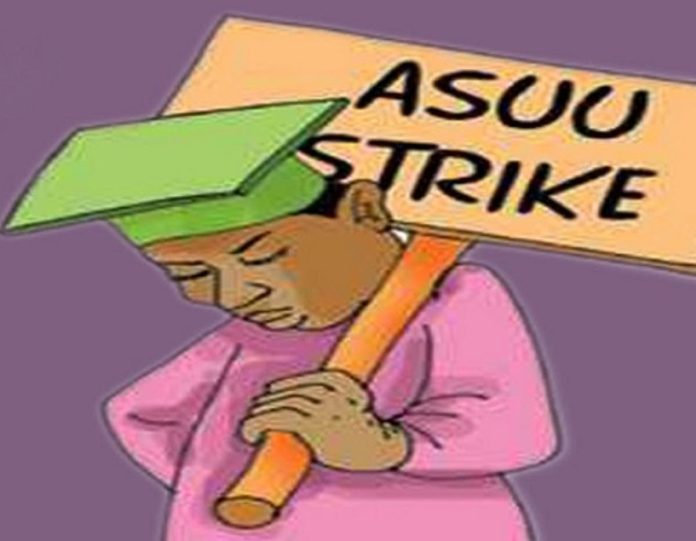ASUU President, Prof. Chris Piwuna, has accused the Federal Government of neglecting the education sector, saying its officials do not view the challenges facing education as a shared national responsibility.
Speaking during “The Toyin Falola Interviews” on Sunday, ASUU President Prof. Chris Piwuna said the Federal Government’s indifference to education has stalled meaningful reform in the sector. The virtual discussion, titled “A Conversation with the ASUU President”,highlighted how key officials treat education issues as solely the Education Minister’s duty.
Piwuna noted that this narrow view among members of the Federal Executive Council undermines collective responsibility. He added that due to this continued neglect, ASUU has often resorted to strike actions to push its demands.
In recent years, ASUU has frequently justified its strikes by pointing to government actions it sees as a “total departure” from the 2009 FGN-ASUU Agreement. The union also highlights unresolved issues like unpaid promotion arrears, withheld deductions, and insufficient funding and renovation of public universities.
Prof. Piwuna emphasized that many government officials do not perceive education challenges as their concern. When ASUU calls a strike, the Minister of Finance and the Minister of Science and Technology each treat it as solely the Minister of Education’s problem.
Prof. Chris Piwuna emphasized that if the Minister of Finance recognized that national economic growth relies on an educated workforce, he would treat challenges in the education sector as a shared responsibility. He argued that this lack of collective ownership among ministries contributes to the persistent neglect of education.
He further pointed out that ideological differences and corruption have worsened the situation. While ASUU views education as a public good, government officials often see it through a profit-driven, capitalist lens. Piwuna also criticized proposals for TETFund to support private universities, calling it a reflection of rising self-interest and corruption within public service.
During the virtual discussion moderated by Prof. Toyin Falola, the panel reflected on ASUU’s long-standing disputes with the Federal Government, which have repeatedly disrupted academic calendars.
Contributing to the discussion, Prof. Francis Egbokhare noted that the Nigerian university system suffers from a lack of visionary leadership, decaying infrastructure, and poor accountability mechanisms. Other panelists included economist Prof. Sherrifdeen Tella, NLC President Joe Ajaero, and journalist Grace Edema.
Prof. Egbokhare highlighted the poor quality of infrastructure in Nigerian universities, attributing it to flawed leadership and integrity issues within governing councils. He emphasized that while funding is important, a shift in funding models is equally crucial. Universities, he suggested, could earn more if government agencies relied on them for research, consultancy, and training services.
Nigeria Labour Congress President, Joe Ajaero, called for a comprehensive strategy to tackle the education crisis. While acknowledging ASUU’s struggles, he stressed that solutions must also address basic education levels. Economist Prof. Sherrifdeen Tella added that Nigeria’s underdevelopment is partly due to the neglect of academic research.
Prof. Sherrifdeen Tella emphasized the importance of research in national development, noting that agricultural advancements stem from academic efforts, yet research continues to be undervalued in Nigeria. During the ongoing ASUU National Executive Council meeting in Taraba State, ASUU President Prof. Chris Piwuna provided updates, stating that talks with the Federal Government are progressing but expressed dissatisfaction with the proposed salary structure.
He warned that the union is prepared to resist any unfavorable terms, stressing that lecturers are underpaid and under-supported. Piwuna also criticized wealthy Nigerians for investing in private universities while neglecting public institutions. He described dire conditions facing many academics, with some resorting to living in their offices due to poor housing and financial hardship.
Piwuna lamented the harsh realities facing Nigerian academics, questioning how lecturers burdened by poor welfare and living conditions could be expected to attract endowments or lead cutting-edge research.
“We are still struggling to move out of the 17th century, not the 18th,” he said, highlighting the deep-rooted neglect and outdated systems that continue to hold the nation’s education sector back.




